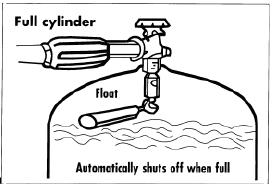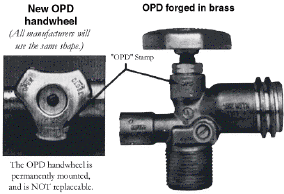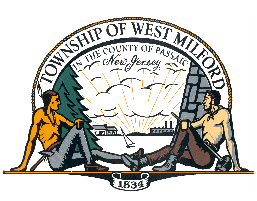Barbecue Safety

GAS GRILL SAFETY
Many injuries are caused each year when gas grills are improperly used and consumers take uneducated chances regarding grill safety. A fire or explosion can occur when consumers first use a grill that has been left idle for a period of time or just after refilling and reattaching the grill's gas container. To reduce these risks, consumers should follow these gas grill safety tips. It might prevent a tragedy.
- Liquid petroleum (LP) gas or propane, used in gas grills, is extremely flammable. Consumers should use extreme caution and always follow manufacturer's instructions when connecting or disconnecting LP gas containers. Never attempt to repair the tank valve or the appliance yourself. See an LP gas dealer or a qualified appliance repair person.
- A gas grill should be checked for leaks every time the cylinder is replaced.
- Check the tubes that lead into the burner for any blockage from insects, spiders, or food grease.
- Use a pipe cleaner or wire to clear blockage and push it through to the main part of the burner.
- Check grill hoses for cracking, brittleness, holes, and leaks.
- Make sure there are no sharp bends in the hose or tubing.
- Move gas hoses as far away as possible from hot surfaces and dripping hot grease.
- If you can't move the hoses, install a heat shield to protect them.
- Replace scratched or nicked connectors, which can eventually leak gas.
CHECK FOR GAS LEAKS!
- Check for gas leaks, following the manufacturer's instructions, if you smell gas or when you reconnect the grill to the LP gas container.
- Follow the manufacturer's instructions, however you can also take a soapy solution (one part dish soap, five parts water) and pour it over the connections. The solution will begin to bubble if there is a leak.
- If you detect a leak, immediately turn off the gas and do not attempt to light the grill until the leak is fixed! Do not attempt to repair or fix the leak yourself!
- Keep lighted cigarettes, matches or open flames away from a leaking grill.
- See an LP gas dealer or a qualified appliance repair person.
STORING / TRANSPORTING LP GAS
- Always follow the manufacturer's instructions that accompany the grill and use caution when storing LP gas containers.
- Always keep containers upright.
- To avoid accidents while transporting LP gas containers, consumers should
transport the container in a secure, upright position. - Never store a spare gas container under or near the grill or indoors.
- Never store or use flammable liquids, like gasoline, near the grill.
- Never keep a filled container in a hot car or car trunk.
Heat will cause the gas pressure to increase, which may open the
relief valve and allow gas to escape.
As of April 1, 2002 cylinders without OPD's cannot be used!
An OPD (Overfilling Prevention Device) is a safety feature that helps prevent small propane cylinders from being overfilled.

There are limits to how much propane can be put into a cylinder. A properly filled cylinder will have a vapor space left in the top of the cylinder to allow room for expansion of the liquid with a change in atmospheric temperature. An overfilling prevention device is a secondary means of assuring that cylinders are not overfilled.

There are at least two ways to identify OPD equipped cylinders. New cylinder wrappers and/or warning labels will include this information. Second, most cylinders with OPD's have special triangular the letters "OPD" (However, some OPD's were produced before the letters on the valve handles and valve bodies were required so check the wrapper or label or ask your propane refiller to identify the type of valve on your cylinder. Beginning in October of 1998 all newly manufactured small propane cylinders (capacity of 4 pounds up to 40 pounds) are equipped with an overfilling prevention device.
All outdoor grills have the potential to lead to tragedy when carelessness causes structural fires or serious burns to people and pets. According to the Insurance Information Institute, backyard barbecues result in more than 2-thousand fires, over 300 grill related injuries and 3 or more deaths each year. Please follow the safety tips on this page when using your gas grill or barbeque.
AVOID DEADLY GRILLING DANGERS
- Keep a fire extinguisher accessible near your grill area when you begin. Be sure you know how to use a fire extinguisher before you need it!
- Be sure all children know how to dial 911 for any emergency situation.
- Do not wear loose clothing while cooking.
- Be vigilant when you have small childern around.There are many potential hazards from the lighter fluid, from the propane tanks or just the hot surfaces of the grill.
- Do not use the grill in a garage, breezeway, carport, porch, party tents, patio, fire escapes or under a surface that can catch fire.
- All grills in use should rest at least 15-20 feet from the house, car, trees and party decorations.
- If you live in a condo, townhouse or apartment complex, gas grills are prohibited on balconies or covered patios.
- Never leave any grill unattended or allow children to play or run in the area of the grill.
- Remember that alcoholic beverages are flammable! Keep them away from the grill.
GAS GRILL SAFETY FEATURES
Consumers should consider purchasing grills that have these safety features: a device to limit the flow of gas in the event of hose rupture; a mechanism to shut-off the grill; and a feature to prevent the flow of gas if the connection between the tank and the grill is not leak proof.
GAS GRILL USAGE
- When lighting the grill, keep the top open. If the grill does not light in first several attempts, wait 5 minutes to allow gas to dissipate.
IF YOUR GAS GRIL CATCHES FIRE
- If the fire is in the grill portion and seems "out of control" simply turn off the burners.
- If the fire involves one of the hoses and you can safely reach the propane tank valve, shut the tank valve off.
- If the fire involves the tank, leave it alone, evacuate the area and call the fire department(911)
- If there is any type of fire that threatens either personal safety or endangers property, call the fire department (911)
CHARCOAL GRILLS
Charcoal produces carbon monoxide (CO) when it is burned. CO is a colorless, odorless gas that can accumulate to toxic levels in closed environments. Each year about 30 people die and 300 are injured as a result of poisonous CO fumes from charcoal grills and hibachis used inside. In addition to the Carbon Monoxide hazard, charcoal grills can cause fires and burn injuries.
To reduce injury and CO poisonings, follow these safety tips:
- Never burn charcoal inside of homes, vehicles, tents, or campers.
- Charcoal should never be used indoors, even if ventilation is provided!
- Since charcoal produces CO fumes until the charcoal is completely extinguished, do not store the grill indoors with freshly used coals.
- When lighting a grill, the safest fire starters are chemicals in cake form or a charcoal electric starter.
- When using charcoal lighter fluid, follow the directions carefully and do not use too much charcoal lighter fluid. Use only fluid made for charcoal grills and NEVER any other type of fluid!
- To speed a slow fire, tuck dry kindling under the charcoal. Make sure the barbecue grill is level and steady and keep a container of water nearby.
- Never add fire starter after you have started your barbecue or on an open flame. The heat from the coals could ignite the stream of liquid and burn back to the can, causing it to explode in your hands!
- Never attempt to re-ignite fizzling coals. The old coals should be dumped and replaced with fresh ones.
- After cooking, soak the coals in water. Dispose of charcoal in a metal container with a tight fitting lid. Many brush and house fires start because hot coals, thought to be cool, were dumped in leaves or trash cans.
- Since charcoal produces CO until the charcoal is completely extinguished, do not store the grill indoors with freshly used coals.
- A bag of damp or wet charcoal should be immediately and properly disposed of, as it can spontaneously combust.






 Online Tax Payments
Online Tax Payments
 Community Services & Recreation
Community Services & Recreation
 Public Safety
Public Safety
 Emergency Information
Emergency Information
 Meetings & Minutes
Meetings & Minutes
 Forms & Documents
Forms & Documents
 Service Request
Service Request
 FAQs
FAQs
 Links
Links
 Contact Us
Contact Us



